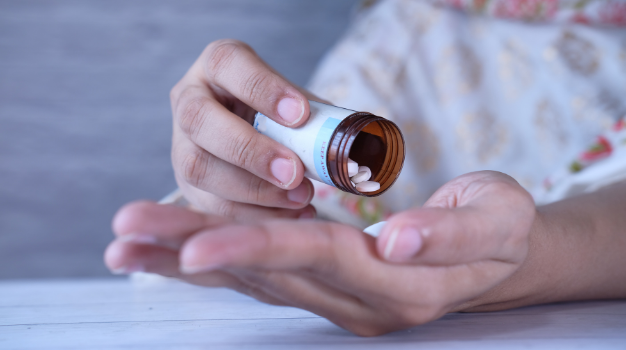Antibiotics ‘not the answer’ for COVID, flu and other conditions
Wednesday, November 17, 2021

Sefton patients are urged to ‘think twice’ before asking for antibiotics to treat conditions such as COVID-19, the flu virus and toothache.
The advice comes from NHS healthcare professionals in Sefton ahead of this year’s World Antimicrobial Awareness Week. This annual event aims to encourage responsible use of antibiotics and other antimicrobial medicines to prevent the spread of dangerous drug resistant germs.
Over time, the overuse or inappropriate use of medicines such as antibiotics can lead to Antimicrobial Resistance (AMR), which is when bacteria, viruses, fungi and parasites change over time and become resistant to medicines. This makes infections harder to treat and increases the risk of diseases spreading, severe illness and death.
Residents are advised not to take antibiotics when they don’t need them, and if unsure, to follow the advice of their doctor, nurse or pharmacist.
Susanne Lynch MBE, head of medicines management at NHS South Sefton Clinical Commissioning Group (CCG) and NHS Southport and Formby CCG, said:
“Antibiotics are not always the answer. They are not effective against the COVID-19 virus or against everyday viral infections like the common cold or the flu, so seek advice from your doctor or pharmacist to get the right treatment for your condition.
“Your doctor will prescribe antibiotics when they are needed and when they will be effective against a bacterial infection, so only take these types of medicines when you are advised to do so.
“Patients taking antibiotics unnecessarily puts us all at more risk, as it means that dangerous germs can start to develop resistance to these medicines, meaning they cannot be treated in the future.”
Dr Yvonne Dailey, lead consultant in dental public health at NHS England and NHS Improvement – North West, said: “It’s also important to remember that there are solutions other than antibiotics for dental problems like toothache or dental abscesses. Antibiotics are not always the best way of treating tooth decay, gum disease or jaw problems, and are not usually needed.
“Always talk to your dentist if you have worries about pain, swelling, lumps or ulcers in your mouth, including if you are worried about oral cancer. They need to examine you and find out the cause of your problems before they can advise on the best options to treat you.”
Residents in Sefton who feel unwell and need medical advice for non-emergency conditions are advised to call 111, or visit NHS 111 online: www.111.nhs.uk





